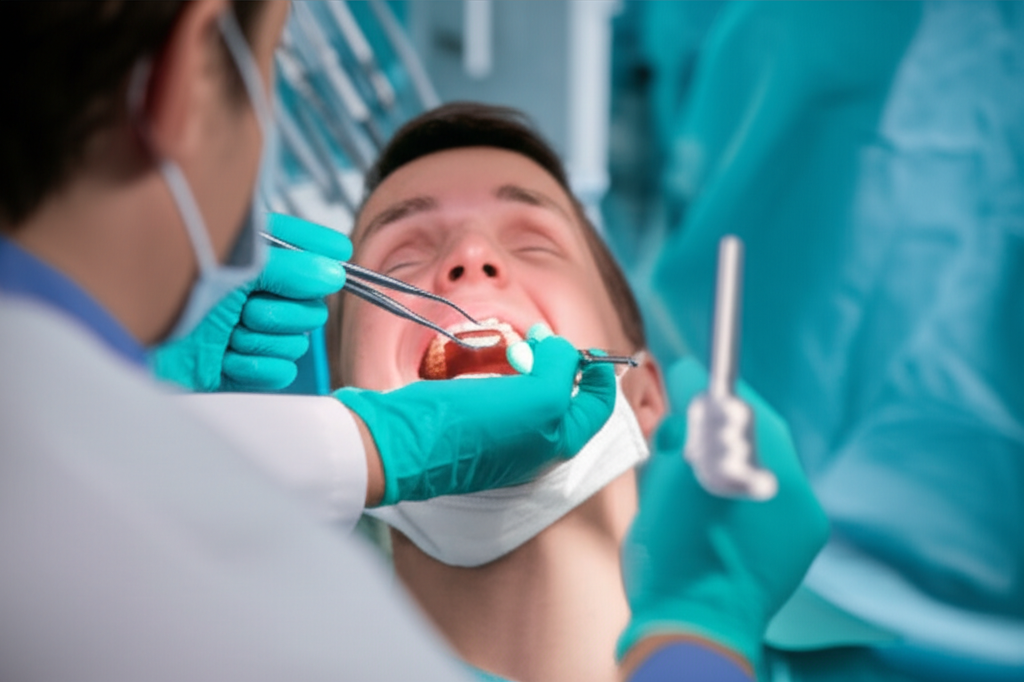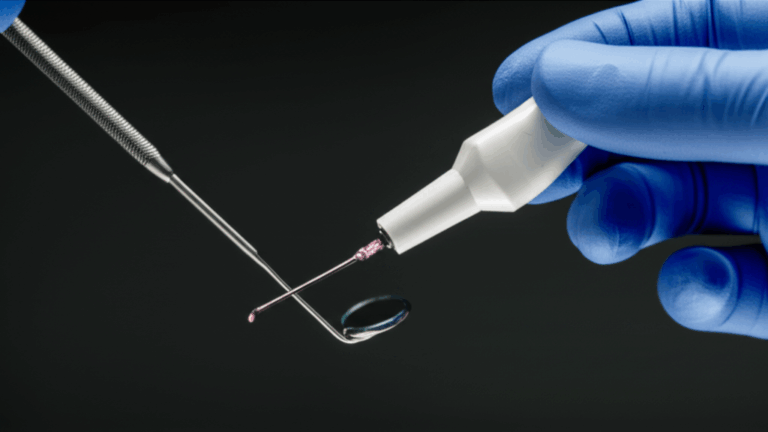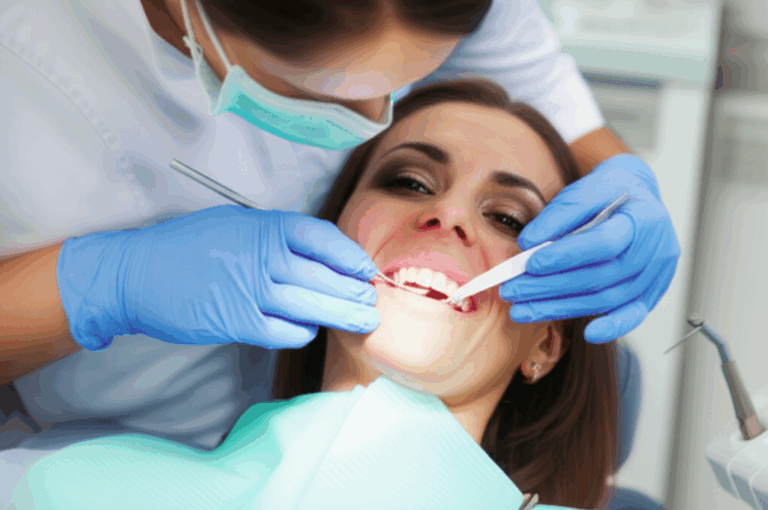
Is an Oral Surgeon a Dentist or a Doctor?
Understanding Their Unique Medical and Dental Skills
That Referring Paper: Are You Seeing a Dentist, a Doctor, or… Both?
You just got referred by your dentist. Maybe you need your wisdom teeth out, a dental implant, or you have face pain you just can’t figure out. Now you’re thinking, “Is this oral surgeon a dentist, a real doctor, or somehow both?” If you’re confused, you are not alone! Lots of people feel the same—especially since you want to know just who will be doing surgery in your mouth or jaw.
Let’s go step by step in simple words. I’ll explain what an oral surgeon really is, and why it matters when you need special dental or face procedures.
In This Article
- The Core Question: Are Oral Surgeons Dentists, Doctors, or Both?
- What is an Oral and Maxillofacial Surgeon (OMS)?
- How Do Oral Surgeons Train? (Two Types of Degrees)
- What Procedures Do Oral Surgeons Do?
- Dental vs. Medical: Why Training is Important
- Who Needs an Oral Surgeon?
- Main Differences: Dentists, Oral Surgeons, and Medical Doctors
- What to Do: Finding the Right Specialist
The Core Question: Are Oral Surgeons Dentists, Doctors, or Both?
Let’s get right to the point.
Is an oral surgeon a dentist, a doctor, or both?
Short answer: Every oral surgeon first is a dentist. Many—though not all—also get a doctor degree. This means some have both dental (DDS or DMD) and medical (MD) degrees, but all of them finished tough dental school first, plus years of extra surgical training.
Why both backgrounds? Because oral and maxillofacial surgeons work right where teeth and the rest of your face and jaws come together—so their job is part dental, part medical.
Think of an oral surgeon like a builder who works on both houses and the land they sit on. They do jobs too hard for regular dentists, but still need doctor-like surgery skills.
What is an Oral and Maxillofacial Surgeon (OMS)?
The full name is Oral and Maxillofacial Surgeon (OMS).
Simply put, they’re experts in:
- Surgery for the mouth, jaw, and face
- Fixing dental and face problems (from pulling wisdom teeth to jaw fixes and face injuries)
- Dealing with things like stuck teeth, face injuries, mouth lumps (like cysts), and even some face cosmetic work
OMSs are not just “super dentists” or “half doctors.” They spend years—sometimes more than ten—learning and practicing. This makes them some of the best-trained specialists around.
How Do Oral Surgeons Train? (Two Types of Degrees)
It might surprise you how long becoming an oral surgeon really takes.
Let’s break it down.
1. Dental School: Becoming a DDS or DMD
Every oral surgeon starts as a dentist. First, they finish 4 years of college (often science classes), then get into dental school. Dental school is another four years. They learn:
- About mouths, teeth, and body basics
- Regular dental work (like fillings, crowns, cleanings)
- Simple tooth pulling and basic mouth diseases
After this, they get a Doctor of Dental Surgery (DDS) or Doctor of Dental Medicine (DMD), which really mean the same thing. Now, they’re a dentist.
Before working, they have to pass really hard national and state tests for a dental license.
2. OMS Residency: The Specialist Path
Here’s where it gets tough.
After dental school, those who want to be oral surgeons apply for a really competitive hospital-based residency in oral and maxillofacial surgery. This takes 4 to 6 years extra (sometimes more, especially if you do both degrees).
During this time, they:
- Train with doctors and surgeons in the hospital
- Learn everything about head, neck, and jaw surgery
- Pick up advanced skills in anesthesia, emergencies, and lots of other medical areas
- Get ready to handle tough medical situations and sudden problems in the mouth and face
OMS residents often spend time helping with trauma, working in the OR, and even the ICU, learning way more medicine than dentists usually do.
Dual Degree (DDS/MD) vs. Single Degree (DDS Only)
Some programs, especially in the US and UK, let you get a dual degree. Here, you finish dental school, then get both a dental degree (DDS or DMD) and a real Doctor of Medicine (MD) degree, switching between dental and medical classes and surgeries.
Not all oral surgeons have an MD, but every single one finished dental school and years of surgery training focused on the mouth, face, and jaws. Today, about 40% of new oral surgeons pick the dual-degree path.
What Procedures Do Oral Surgeons Do?
Maybe you think oral surgeons are just “the people who take out wisdom teeth.”
But that’s just the start. Here’s what really makes them different:
Common Procedures:
- Removing Impacted Wisdom Teeth: Especially tricky ones that are stuck, infected, or near nerves.
- Dental Implant Surgery: Putting in fake roots for teeth, sometimes needing bone fixes.
- Hard Tooth Pulls: If teeth are broken, damaged, or deep in the bone.
- Biopsies for Mouth Problems: Checking and fixing odd spots, bumps, or sores.
Harder Surgeries:
- Jaw Repair/Orthognathic Surgery: Fixing bad jaw alignment, face shape problems, or birth defects like cleft lip and palate.
- Face Injury Repair: Fixing damage from falls, sports, or accidents (like broken jaws or eye sockets).
- TMJ Surgery: Treating really bad jaw-joint pain and movement problems.
- Mouth Cancer Treatment: Removing bad tissue, often with other doctors involved.
Surgical Anesthesia:
Oral surgeons are unique—they can safely give all kinds of anesthesia—from mild calming drugs to heavy sleep—at their office or in hospitals. They train more in anesthesia than most medical or dental pros.
Dental vs. Medical: Why Training is Important
If you’re stuck asking if you need a dentist or a doctor, here’s how an oral surgeon’s extra years really matter.
1. Handling Tricky Problems Safely
- If you need jaw surgery, serious infection help, or have health problems like heart issues or diabetes, your oral surgeon’s extra med training keeps you safe.
- They know what to do with tricky medical things that others might not handle.
2. Hospital Access and Working with Teams
- Unlike most dentists, oral surgeons can work in hospitals.
- This means they help with big surgeries, and team up with doctors from other specialties—like ENT, plastic surgery, cancer doctors, or anesthesiologists.
- They often help in ERs with mouth and face injuries.
3. Practice and Accuracy
- The harder the surgery, the more you benefit from your surgeon’s focus and time spent learning.
- Success is higher for big surgeries, like dental implants or jaw fixes, with an OMS.
4. Extra Tests and Ongoing Learning
- Over 85% of oral surgeons pass tough “board” tests through the American Board of Oral and Maxillofacial Surgery, proving they keep up with new skills.
Who Needs an Oral Surgeon?
Not every dental problem needs an oral surgeon. Your regular dentist is best for cleanings, fillings, and most normal care. An OMS helps when:
- Your dentist or orthodontist sends you for surgery because it’s a hard or risky job.
- You’re having any hard extractions, implants, biopsies, or injuries like the ones above.
- You have a health problem needing hospital-level pain control or surgery (like heart trouble, allergies, or bleeding problems).
- There’s a worry about some weird spot, bump, or wound in your mouth.
When Can Your Dentist Do It?
- Most easy tooth pulls (if roots are straight and far from important nerves)
- Fillings, crowns, bridges
- Regular cleanings, checkups, and X-rays
If your dentist says, “You need an oral surgeon,” that’s to make sure you get the best help. It doesn’t mean anything scary—just that you’re being sent to someone who can keep you safer.
Main Differences: Dentists, Oral Surgeons, and Medical Doctors
Here’s a quick look at who does what with teeth, jaws, and faces:
| Provider | Main Job | Best For |
|---|---|---|
| General Dentist | Basic and normal dental care | Regular checkups, cleanings, fillings, crowns |
| Oral Surgeon (OMS) | Surgery for the mouth, jaw, and face | Wisdom or stuck teeth, implants, jaw surgery, injuries, odd face lumps |
| Medical Doctor (GP, ENT, Plastic, etc.) | Overall body care or certain specialties | Non-dental health, some face or plastic surgeries |
Other dental pros include orthodontists (braces), periodontists (gum surgery), prosthodontists (crowns and bridges), and endodontists (root canals)—but only an oral surgeon is trained for all the operations needed on the mouth, face, and jaws.
The Science Behind Their Training: Why You Can Trust an OMS
Is this long training worth it? Does it really matter who does your oral surgery?
Definitely.
- Training for an oral surgeon takes 8–12+ years after high school (sometimes longer than a regular doctor!).
- The job is one of 12 dental specialties listed by the American Dental Association.
- Oral surgeons are often the only dental pros allowed in hospitals. They take care of emergencies and surgeries that are both dental and medical.
- OMSs use the newest tech, often working with top digital dental labs and other high-end partners to fix and rebuild teeth and smiles.
Think of your mouth like a house. Your dentist is the regular builder—good for repairs and day-to-day work. When you need a big fix, like a new foundation or major rebuild, you call the expert. That’s your OMS.
Your Options Explained: At-Home Care vs. Specialist Care
What Can You Do For Oral Health Problems?
At Home/With Your Dentist
- Brush, floss, checkups
- Fillings or crowns, sometimes with help from a china dental lab
- Teeth whitening, small fixes for chips
With a Specialist
- Hard surgeries (jaw surgery, implants, fixing injuries)
- Checking and treating mouth lumps, cysts, or odd tissue
- Heavy sedation or full sleep for long or hard procedures
- Hard extractions, especially with stuck teeth or teeth near nerves
- Fixing the mouth or face after cancer or accidents, sometimes with help from other surgeons
When Should You Definitely See an Oral Surgeon?
- You see a strange lump, sore, or non-healing spot in your mouth.
- Your dentist says taking out a tooth is “hard” or risky (like roots near a nerve).
- You need dental implants but your jawbone needs repair or is shaped odd.
- Bad accident hurts your teeth, jaw, or face.
- Problems with your jaws (clicking, pain, hard to open/close) that may need surgery.
Who Is a Good Candidate for Oral Surgery?
Not everyone needs oral surgery, but if you do, you want the right pro.
Good Candidates:
- Teens/adults with stuck or sore wisdom teeth
- People getting dental implants, especially if they lost bone
- Anyone needing a lump, bump, or weird patch checked or removed
- Children or adults born with jaw or face problems (like cleft palate)
- People hurt from car wrecks, sports, or bad accidents
- Those wanting hard face repair or cosmetic surgery
Special Things to Keep in Mind:
- If you have long-term illnesses (heart trouble, bleeding, diabetes), an oral surgeon’s medical training keeps you safer for sleep and surgery.
- Older or weak patients do better with a surgeon who works with medical doctors.
- Kids and teens needing jaw or palate fixes should see an OMS with children’s hospital training.
Common Questions and Myths (FAQ)
1. Can any dentist do oral surgery?
Most general dentists can do easy tooth pulls or minor mouth work.
For hard surgeries—deeply stuck teeth, fixing jaws, or removing big bumps—they will send you to an OMS, who has lots more training.
2. Is an MD oral surgeon “better”?
Not always, but an MD often helps for the toughest or most complex jobs. All OMSs know a ton about both dental and surgery work; those with an MD work more in hospitals, or with head-and-neck cancer teams.
3. Is office oral surgery safe?
Yes, when done by a trained, certified OMS with the right safety tools and backup plans. Oral surgeons take regular safety classes and tests in different anesthesia, so you’re safe.
4. What do oral surgeons do that’s different from an ENT or plastic surgeon?
ENTs fix the ear, nose, and throat—some do face surgery. Plastic surgeons focus on looks and fixing the body. OMSs are dental surgeons who know the most about teeth, jaws, and the face—especially when teeth and mouth tissue are involved.
5. I’m worried about anesthesia—is it safe?
Being nervous is normal! Here’s the good news:
Oral surgeons spend more time learning about sleep and calm medicine than almost anyone (except true anesthesiologists). They know the best and safest choices for you—mild, “twilight,” or full sleep.
The Key Takeaways: What You Should Remember
Let’s make it simple:
- All oral surgeons are dentists first—some are doctors too.
- They train for years in mouth, jaw, and face surgery, plus anesthesia and emergencies.
- They do everything from wisdom teeth and implants to hard jaw repairs and cancer surgery.
- When your dental or health problem is big or tricky, your oral surgeon is the best person for safety and results.
- Getting the right person for the right job is what matters most.
What to Do Next: Take Charge of Your Health
If your dentist refers you to an oral surgeon, you’re not lost—you’re doing what’s safest for you.
Here’s what you can do:
It’s totally fine to ask your oral surgeon where they learned, their special certificates, and if they work at a hospital.
Ask why you were referred. Get a simple answer and bring questions to your first visit.
Let your oral surgeon explain the best pain or sleep option for you.
Don’t forget to tell them about your health problems, medicine, or allergies.
After surgery, stick with your regular teeth cleanings and daily brushing at home.
Quick Fact Recap (Bullet Points)
- All oral surgeons are dentists—some have a doctor degree too.
- They’re the surgery experts for the mouth, jaw, and face.
- Most tough tooth pulls, face injuries, implants, or mouth lumps should be done by an oral surgeon.
- They have extra training in anesthesia—to keep you safe and pain-free even for hard jobs.
- Your main dentist is your go-to for yearly care—your OMS is for the major work.
Friendly Help: Don’t Stress Out Over Titles
If these labels stress you out, don’t worry! What really matters is if you feel okay and trust your surgeon.
If you want to check out high-tech fixes for implants, digital teeth plans, or tough repairs, your oral surgeon works closely with an expert implant dental laboratory or other top labs to get you the best results. New technology helps them plan, build, and fix teeth with great-looking stuff—like zirconia, ceramics, or even special printed guides from a 3d dental lab.
Still worried? That’s what your checkup is for! Write down your worries, and know your specialist—dentist, doctor, or a little of both—will walk you through everything.
A great smile and healthy mouth always begins with asking the right questions—and trusting your expert every step of the way.
Medically reviewed by a licensed dental professional. Sources: American Dental Association, American Association of Oral and Maxillofacial Surgeons, American Board of Oral and Maxillofacial Surgery.








